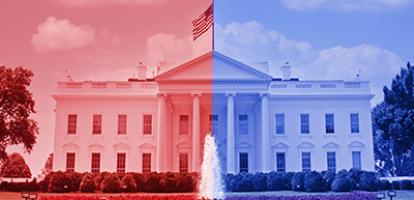From: Jon Johnson
To: Global Affairs and the Canadian Automotive Industry
Date: January 9, 2020
Re: CUSMA Auto Rules of Origin, the Protocol and US Implementing Legislation – Part Two
The United States-Mexico-Canada Agreement Implementation Act, the US legislation that will implement CUSMA, sets out extensive provisions respecting the administration of the trade agreement’s rules of origin (ROOs).
The implementing legislation requires that the president establish an interagency committee including the US Trade Representative, the Commerce Secretary, the US Customs and Border Protection Commissioner and the chair of the US International Trade Commission (USITC) to advise on the implementation of the automotive ROOs, their economic effect and the impact on the rules of new technology. The trade representative and the USITC must each report biennially on the operation of the automotive ROOs.
The implementing legislation also deals extensively with the administration of the two managed trade provisions in the CUSMA ROOs, namely the labour value content (LVC) requirement and the steel and aluminum purchase requirement. In addition, the implementing legislation sets out requirements respecting the administration of alternative staging regimes for which the CUSMA ROOs provide.
In addition to complying with certificate of origin requirements, imported vehicles will be eligible for CUSMA duty-free treatment only if a producer provides a certification to the Customs and Border Protection Commissioner that its vehicles meet the LVC requirements. The US Labour Secretary (in consultation with the commissioner), must ensure that the producer’s certification does not contain omissions or errors. The Treasury Secretary must prescribe regulations setting out procedures and requirements for a vehicle producer to meet the LVC requirements.
The vehicle producer must also provide a certification to the commissioner that it has met the CUSMA steel and aluminum purchase requirements. As with the LVC requirement, the Treasury Secretary must prescribe regulations setting out procedures and requirements to establish that the producer meets the steel and aluminum purchase requirements.
The legislation permits the producer a longer time to transition to the higher CUSMA regional value content requirements for its vehicles, provided that the transition only covers 10 percent of the producer’s vehicles, or a higher number if the producer has a credible plan for achieving the required threshold. The trade representative must publish procedures and guidance to implement the alternative staging regime within 90 days after the legislation’s enactment.
The implementing legislation raises an important question for Global Affairs and Canadian auto producers as to how the regulations prescribed by the Treasury Secretary respecting the LVC and the steel and aluminum purchase requirements, and the trade representative’s procedures and guidance for alternative staging regimes, will interact with the Uniform Regulations regarding the “interpretation, application, and administration” of the CUSMA ROOs that CUSMA requires that the parties “adopt or maintain through their respective laws or regulations.”
The implementing legislation requires that regulations to implement the Uniform Regulations regarding the CUSMA rules of origin be prescribed not later than the date on which CUSMA enters into force.
As pointed out in my C.D, Howe Institute Commentary last year, the CUSMA automotive ROOs, particularly those respecting the LVC and the steel and aluminum purchase requirements, and alternative staging regimes, require clarification in order that they can be administered in a predictable manner.
While it is reasonable that purely US administrative matters be covered in the Treasury Secretary’s regulations and the trade representative’s procedures, clarification of the ROOs must be dealt with by all three CUSMA parties through the Uniform Regulations.
Jon Johnson is a former advisor to the Canadian government during the NAFTA negotiations and is a Senior Fellow at the C.D. Howe Institute.
To send a comment or leave feedback, email us at blog@cdhowe.org.
The views expressed here are those of the author. The C.D. Howe Institute does not take corporate positions on policy matters.





